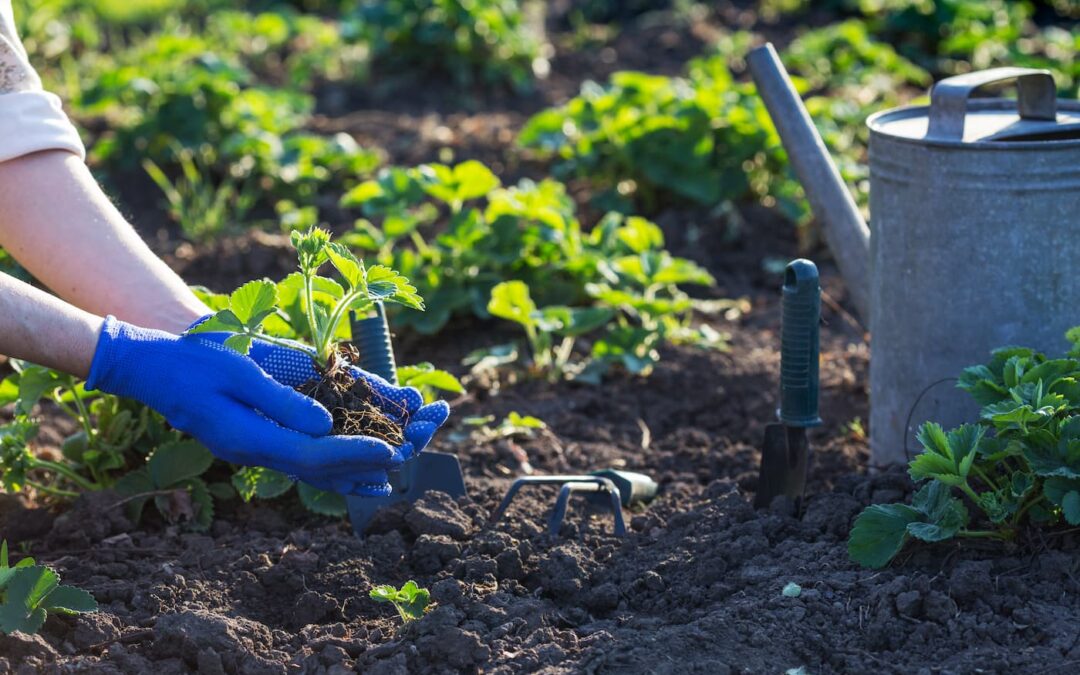Starting a garden from scratch can be an exciting and rewarding experience. Whether you want to grow your own food or create a beautiful outdoor space, gardening can provide numerous benefits for your physical and mental health. But where do you start? In this beginner’s guide, we’ll explore the essential steps and tips for starting a garden from scratch.
Choose the Right Location
When choosing the location for your garden, it’s important to find an area that is free from obstructions like buildings, trees, or fences that can limit the amount of sunlight. Aim to find a spot that is sheltered from strong winds that can cause damage to young plants. It’s also essential to consider the slope and drainage of the site, as plants can suffer from waterlogging in low-lying areas or from soil erosion on sloping terrain. Additionally, be mindful of the distance between your garden and the nearest water source, as dragging a hose over a long distance can be tiring and time-consuming.
Decide on the Type of Garden
When deciding on the type of garden, also consider the space you have available and your level of experience. If you’re a beginner, starting with a small garden with a few easy-to-grow plants can help you gain confidence and experience before taking on more ambitious projects. Researching which plants grow best in your area can also help you avoid the frustration of planting things that won’t thrive in your climate and soil type.
Prepare the Soil
In addition to adding organic material, consider the texture of your soil. For example, if your soil is too sandy or too clay-heavy, you may need to add additional amendments to create the right balance. You may also want to consider raised beds or container gardening if your soil quality is poor or you have limited space. Proper soil preparation can make a big difference in the success of your garden.
Choose the Right Tools
When selecting gardening tools, it’s important to choose ones that are comfortable to use and well-suited for the type of work you’ll be doing. For example, a spade with a long handle can help reduce strain on your back when digging, while lightweight gloves made of breathable fabric can help protect your hands without causing excessive sweating. Additionally, consider investing in a good quality watering can or hose to make watering your plants easier and more efficient.
Start with Easy-to-Grow Plants
As a beginner, it’s important to choose plants that are resilient and easy to care for. In addition to the plants mentioned above, other low-maintenance options include herbs like basil and mint, leafy greens such as lettuce and spinach, and succulents like aloe vera and jade plants. By starting with these easy-to-grow plants, you can gain valuable experience and gradually expand your garden as your skills and confidence grow.
Water Properly
In addition, it’s best to water plants in the morning or evening, when temperatures are cooler and there is less evaporation. You can also use mulch to help retain moisture in the soil and reduce the need for frequent watering. It’s important to pay attention to signs of overwatering, such as yellowing leaves or waterlogged soil, as this can be just as harmful to plants as under-watering.
Practice Good Pest and Disease Management
Companion planting can also attract beneficial insects that can help control pests naturally. Additionally, using organic methods for pest and disease control can help to avoid introducing harmful chemicals into the environment and keep your garden healthy and safe. Regularly inspecting your plants, removing any diseased leaves or flowers, and keeping the garden clean and tidy can also help to prevent the spread of pests and diseases.
Learn from Your Mistakes
Gardening is a fun and rewarding hobby, but it does require some trial and error. As a beginner, it’s important to be patient with yourself and your plants. Keep a gardening journal to track your progress, and don’t be afraid to ask for advice from more experienced gardeners. With time and practice, you’ll develop a better understanding of what works and what doesn’t, and you’ll be on your way to growing a beautiful and productive garden.
Gardening Tips for Beginners
In addition to the steps above, here are some additional tips for beginners starting a garden from scratch: Starting a garden from scratch can be a daunting task, but by following a few simple tips, you can set yourself up for success.
Start Small and Keep It Simple
Firstly, don’t feel like you have to create a large garden right away. Starting with a small plot and working your way up as you gain confidence and experience is a great way to get started. Keeping things simple is also important when starting out. Focus on a few easy-to-grow plants and avoid getting overwhelmed with too many different types of plants.
Consistency is Key
Consistency is key when it comes to gardening. Establishing a regular watering and maintenance routine can help your plants thrive. Adding a layer of mulch to your garden can also help retain moisture and suppress weeds, reducing the need for constant watering and weeding.
Crop Rotation and Pruning for Healthy Plants
If you’re growing vegetables, rotating your crops each season is important to prevent soil-borne diseases and pests from building up. Regular pruning is another essential task to help keep your plants healthy and promote better growth.
Soil Health is Essential
Don’t forget about soil health. Good soil health is essential for healthy plants, so consider adding compost, cover crops, and other soil amendments to keep your soil healthy and fertile. Testing your soil to determine what amendments it needs can be a helpful step in improving soil health.
Learning and Experimenting in Gardening
Remember, gardening is a learning process. Don’t be afraid to experiment and make mistakes, and take notes on what works and what doesn’t. With practice and patience, you’ll learn what works best for your garden and your unique growing conditions.
In conclusion, starting a garden from scratch can be a fun and rewarding experience, but it can also be intimidating for beginners. By following the steps and tips outlined in this guide, you can set yourself up for success and enjoy the many benefits of gardening. Remember, gardening is a learning process, and with time and practice, you’ll become a more confident and skilled gardener. So, grab your tools and get ready to dig in!

